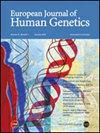Predisposition to prostate cancer and clinical implications in a real-life cohort
IF 4.6
2区 生物学
Q2 BIOCHEMISTRY & MOLECULAR BIOLOGY
引用次数: 0
Abstract
Genetic predisposition is identified in 5–10% of prostate cancer patients. Although genetic testing is more frequently proposed, international recommendations are lacking. This study evaluates the impact of germline analysis on management of prostate cancer patients. Retrospective descriptive data were collected from prostate cancer patients who attended oncogenetic counselling between 2018 and 2021. Data included clinical and tumoral characteristics, and genomic analysis. Comparative analysis was performed between patients with germline pathogenic variants (PVs) and non-carriers using non-parametric tests. Fourteen out of the 168 patients (8.3%) had a PV, primarily in DNA repair genes (N = 13/14), including BRCA1/2 (N = 5). Twenty-five patients (14.9%) had variants of undetermined significance. Patients with PVs were more likely to have synchronous metastatic extension (79% vs 43%, p = 0.02) and a Gleason score ≥8 (82% vs 53%, p = 0.11). Significant enrichment of ATM PVs compared to a healthy control cohort was observed with an odds ratio of 32.5 [15.8–67.0] (p < 0.05). Three of five patients with BRCA1/2 PVs received DNA repair-targeted treatment. This cohort provides insights into the impact of oncogenetic counselling on prostate cancer patients’ management. It highlights the need to refine referral criteria based on disease stage and Gleason score and to further investigate ATM PVs. The data also underscore the importance of developing a care pathway with clear criteria for germline and/or somatic analysis to improve theranostic outcomes.

前列腺癌易感性及其在现实生活中的临床意义。
5-10%的前列腺癌患者有遗传易感性。虽然基因检测更频繁地被提出,但缺乏国际上的建议。本研究评估生殖系分析对前列腺癌患者管理的影响。回顾性描述性数据来自2018年至2021年期间参加癌遗传咨询的前列腺癌患者。数据包括临床和肿瘤特征,以及基因组分析。采用非参数检验对种系致病变异(pv)患者和非携带者进行比较分析。168例患者中有14例(8.3%)有PV,主要在DNA修复基因中(N = 13/14),包括BRCA1/2 (N = 5)。25例患者(14.9%)存在意义不明的变异。pv患者更有可能发生同步转移扩展(79% vs 43%, p = 0.02)和Gleason评分≥8 (82% vs 53%, p = 0.11)。与健康对照队列相比,观察到ATM pv显著富集,优势比为32.5 [15.8-67.0](p
本文章由计算机程序翻译,如有差异,请以英文原文为准。
求助全文
约1分钟内获得全文
求助全文
来源期刊

European Journal of Human Genetics
生物-生化与分子生物学
CiteScore
9.90
自引率
5.80%
发文量
216
审稿时长
2 months
期刊介绍:
The European Journal of Human Genetics is the official journal of the European Society of Human Genetics, publishing high-quality, original research papers, short reports and reviews in the rapidly expanding field of human genetics and genomics. It covers molecular, clinical and cytogenetics, interfacing between advanced biomedical research and the clinician, and bridging the great diversity of facilities, resources and viewpoints in the genetics community.
Key areas include:
-Monogenic and multifactorial disorders
-Development and malformation
-Hereditary cancer
-Medical Genomics
-Gene mapping and functional studies
-Genotype-phenotype correlations
-Genetic variation and genome diversity
-Statistical and computational genetics
-Bioinformatics
-Advances in diagnostics
-Therapy and prevention
-Animal models
-Genetic services
-Community genetics
 求助内容:
求助内容: 应助结果提醒方式:
应助结果提醒方式:


